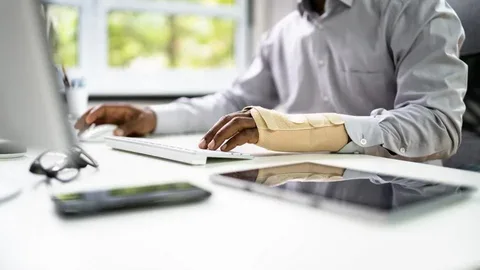A serious injury can turn your world upside down. One moment you’re going about your normal routine in Tallahassee, driving through a busy intersection, shopping at a local store, or enjoying a walk in Cascades Park, and the next, you’re in pain, facing unexpected medical bills, and trying to make sense of what happened. In situations like these, one question matters more than most: Who’s responsible?
In personal injury cases, determining fault, or liability, is essential to seeking fair compensation. But in a place like Tallahassee, where local laws, traffic patterns, and property conditions vary, figuring out who’s truly at fault isn’t always easy. Here’s what you need to know.
What Does “Liability” Really Mean?
Liability is a legal term that refers to someone being responsible for an accident or injury. In simple terms, if another person or company acted carelessly, and that carelessness caused you harm, they can be held legally and financially accountable.
The goal of a personal injury case is to prove that someone else’s negligence caused your injury. Once liability is established, you may be entitled to compensation for medical bills, lost income, pain and suffering, and more.
Types of Accidents Where Fault Matters Most
Every injury is unique, but liability plays a key role in many common situations, including:
- Car accidents: Was another driver distracted, speeding, or intoxicated? Did they run a red light or fail to yield?
- Slip and falls: Did a property owner fail to clean up a spill or repair a dangerous walkway?
- Workplace injuries: Was your employer negligent in maintaining a safe work environment?
- Dog bites: Did the pet owner fail to control or properly secure their animal?
No matter how your injury happened, understanding the role of fault is key to building a strong case.
Shared Fault: What Happens When More Than One Party Is Responsible?
Florida follows a rule called comparative negligence. This means that even if you were partially responsible for the accident, you may still be able to recover damages, as long as you were not more than 50% at fault.
Let’s say you were hit by a speeding driver in Tallahassee, but you were also texting behind the wheel. If a court finds you 30% responsible for the crash, you can still recover 70% of your total damages.
That’s why it’s critical to work with a skilled personal injury lawyer in Tallahassee who understands how to investigate fault thoroughly and protect your right to compensation.
How Is Fault Proven?
Determining who’s liable involves gathering evidence and proving that another party failed in their duty of care. Your attorney may use:
- Police or incident reports
- Eyewitness testimony
- Photos or video footage of the scene
- Medical records
- Expert opinions or accident reconstructions
Insurance companies will often try to shift blame or minimize their client’s role in your injury. With strong legal support, you can stand your ground and present a clear, compelling case that highlights the facts.
When Property Owners Are to Blame
In many Tallahassee personal injury cases, liability falls on a business or property owner. Whether you were injured at a retail store, restaurant, or apartment complex, owners have a legal responsibility to keep their premises safe. That includes fixing broken stairs, cleaning up spills, posting warning signs, and addressing known hazards.
If they fail to do so and someone gets hurt, they can be held liable for the resulting injuries. An experienced team like Joya Injury Law knows how to uncover the truth behind these accidents and hold negligent property owners accountable.
Why Determining Liability Is Not a DIY Task
Fault isn’t always as straightforward as it seems. In some cases, multiple parties may share blame, like a truck driver and the company they work for. In others, evidence may be hidden or difficult to access without legal help.
That’s why it’s important to contact a knowledgeable legal team as soon as possible after an injury. The right lawyer will gather critical evidence, speak with experts, handle the insurance companies, and make sure you’re not blamed for something that wasn’t your fault.
Final Thoughts: You Deserve Clarity, Not Confusion
After an accident, you may feel like you’re stuck in a fog of uncertainty, unsure who to trust or what your rights are. But here’s the truth: You deserve answers. You deserve accountability. And most importantly, you deserve a chance to recover with dignity and peace of mind.
Whether you’re dealing with a car crash, slip and fall, or another type of accident, don’t settle for silence or assumptions. With the right guidance, you can uncover the truth and fight for the outcome you deserve.
Let someone who knows the local landscape and legal system guide you forward, so you can focus on healing while they focus on justice.



